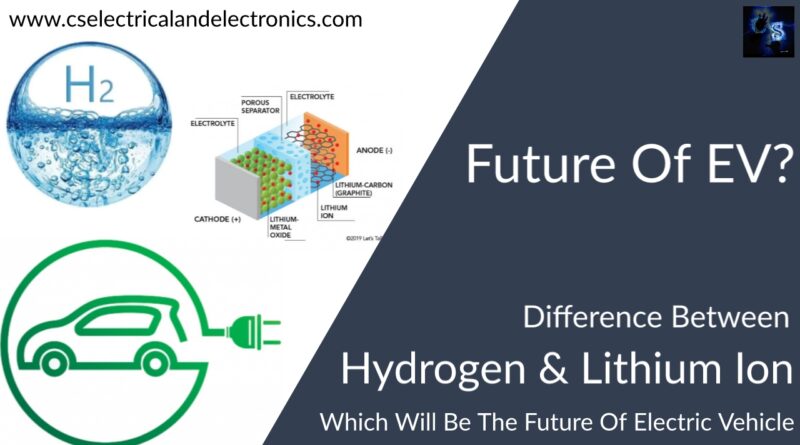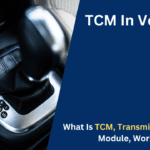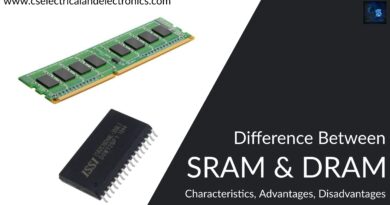Difference Between Hydrogen And Lithium, Future Of Electric Vehicle
Hello guys, welcome back to my blog. In this article, I will discuss the difference between hydrogen and lithium, what will be the future of electric vehicles, it will be hydrogen-based electric vehicles or lithium-ion battery-based electric vehicles.
If you have any doubts related to electrical, electronics, and computer science, then ask questions. You can also catch me on Instagram – Chetan Shidling.
Also, read:
- What is Distance Relay, Working, Advantages, Disadvantages, Applications
- Top 15 IoT Projects For Electrical Engineers, Electrical Engineering Project
- What Is Tariff In Electrical, Characteristics, Types Of Tariff, Benefits
Difference Between Hydrogen And Lithium Based EV
We all know that the demand for pollution-free vehicles is increasing day by day. And here we have two options one is a hydrogen-based electric vehicle and another one is the lithium-ion-based electric vehicle. Both have their own advantages and drawbacks, we will also give a conclusion at the end of this article on which will be the future for electric vehicles.
Introduction
Hydrogen Based Electric Vehicle
Hydrogen fuel cell electric vehicles utilize electricity to power an electric motor. This power is generated by a fuel cell-powered by hydrogen, instead of drawing electricity instantly from a battery. The fuel cell produces electricity via an electrochemical reaction in which hydrogen and oxygen are mixed to produce electricity, heat, and water. The fuel cell is comprised of an anode, cathode, and electrolyte membrane.
In simple words, hydrogen flows inside the fuel cell through the anode, where it’s split into protons and electrons. Hydrogen ions pass via the electrolyte which causes the electrons via a circuit, causing an electric current and excess heat. Oxygen entering at the cathode merges with electrons from the electrical circuit and the hydrogen ions that have passed via the electrolyte from the anode, forming a harmless emission — water.
Lithium-ion Battery Based Electric Vehicle
A battery-electric vehicle utilizes a battery pack to power the vehicle’s electrical motor, which contains varying arrangements of battery cells. While there are multiple variations of battery cell architecture based on various varieties and materials of the anode, cathode, and electrolyte, the basic principle is the same — to supply energy to an electric vehicle, a battery that transforms stored chemical energy into electrical energy and vice versa is utilized. This delivers an electric current, utilized to drive the electric motors that rotate the wheels, propellers, and additional mechanisms.
Lithium-ion Battery Drawbacks
Despite the environmental and efficiency benefits of battery electric vehicles, lithium-ion batteries — believed the best currently known— only have about 1% of the energy density of petrol or diesel. For this cause, shorter and lighter vehicles seem to be the best for battery-electric powertrains. As vehicles rise in size, there will increase in the size and weight of the battery pack needed to power the vehicle, as well as the available range, which makes battery power a less attractive choice.
Hydrogen Based Electric Vehicle Advantages
Hydrogen fuel cells hold a far more amazing energy storage density than lithium-ion batteries, delivering a significant range of benefits for electric vehicles while even being lighter and occupying smaller space. Hydrogen-powered vehicles can also be refueled in only a few minutes, while those that are battery-powered need a wait until the battery charges.
Hydrogen Based Electric Vehicle Disadvantages
The technological challenges encountering hydrogen fuel cell electric automobiles are the availability and pure production of hydrogen and the utilization of hydrogen as a power source. The production of hydrogen needs notable amounts of energy, so the form it’s produced is crucial to its environmental effect. Despite hydrogen existing as a colorless gas, it’s directed to by a range of colors that reveal the environmental impact of its production. They are,
- Grey hydrogen
- Blue hydrogen
- Green hydrogen
Conclusion: Which Will Be The Future
Well guys the future of passenger and short-range vehicles (such as inner-city delivery vehicles) will be with battery-electric powertrains. While hydrogen fuel cell-powered electric vehicles are also believed to have applications in fields such as largely focused on using hydrogen fuel cells for larger scale, long-distance transportation, heavy vehicles, etc.
If one of your primary objectives is to protect the world, battery electric vehicles are much more energy-efficient than hydrogen fuel cell-powered vehicles when you think of the series of steps between power generation and propulsion. With a battery-electric vehicle, once the electricity is produced (from a renewable source) the method of delivering this to your vehicle charging site means that about 5% of it is lost. And during charging and discharging the lithium-ion battery loses another 10%. Eventually, the motor makes wastes another 5% when the vehicle is being operated. That causes a total loss of 20%.
If the hydrogen fuel cell is utilized, you must preferably convert the electricity to hydrogen through electrolysis, which has only 75% efficiency. The gas then must be condensed, chilled, and thrilled, losing another 10%. The fuel cell operation of converting hydrogen back to electricity is just 60% efficient, behind which you hold the same 5% loss from operating the vehicle motor as for a battery-electric vehicle. The overall total is a 62% loss — more than three times as compared to Battery one.
To arrange it another form, for every kW of electricity supply, you get 800W of energy for a battery-electric vehicle but just 380W for a hydrogen fuel cell vehicle — smaller than half as much. That’s a massive inefficiency if you’re wishing for a greener tomorrow and this doesn’t even account for the reality that 95% of hydrogen is presently generated from fossil fuel sources.
This was about ” Difference Between Hydron And Lithium Based EV “. I hope this article may help you all a lot. Thank you for reading.
Also, read:
- 10 Tips To Maintain Battery For Long Life, Battery Maintainance
- 10 Tips To Save Electricity Bills, Save Money By Saving Electricity
- 100 (AI) Artificial Intelligence Applications In The Automotive Industry
- 100 + Electrical Engineering Projects For Students, Engineers
- 1000+ Control System Quiz, Top MCQ On Control System
- 1000+ Electrical Machines Quiz, Top MCQs On Electrical Machines
- 1000+ Electronics Projects For Engineers, Diploma, MTech Students
- 1000+ MATLAB Simulink Projects For MTech, Engineering Students
Author Profile
- Chetu
- Interest's ~ Engineering | Entrepreneurship | Politics | History | Travelling | Content Writing | Technology | Cooking
Latest entries
 All PostsApril 19, 2024What Is Vector CANoe Tool, Why It Is Used In The Automotive Industry
All PostsApril 19, 2024What Is Vector CANoe Tool, Why It Is Used In The Automotive Industry All PostsApril 13, 2024What Is TCM, Transmission Control Module, Working, Purpose,
All PostsApril 13, 2024What Is TCM, Transmission Control Module, Working, Purpose, All PostsApril 12, 2024Top 100 HiL hardware in loop Interview Questions With Answers For Engineers
All PostsApril 12, 2024Top 100 HiL hardware in loop Interview Questions With Answers For Engineers All PostsMarch 22, 2024Driver Monitoring Systems In Vehicles, Working, Driver Sleepy Alert
All PostsMarch 22, 2024Driver Monitoring Systems In Vehicles, Working, Driver Sleepy Alert








